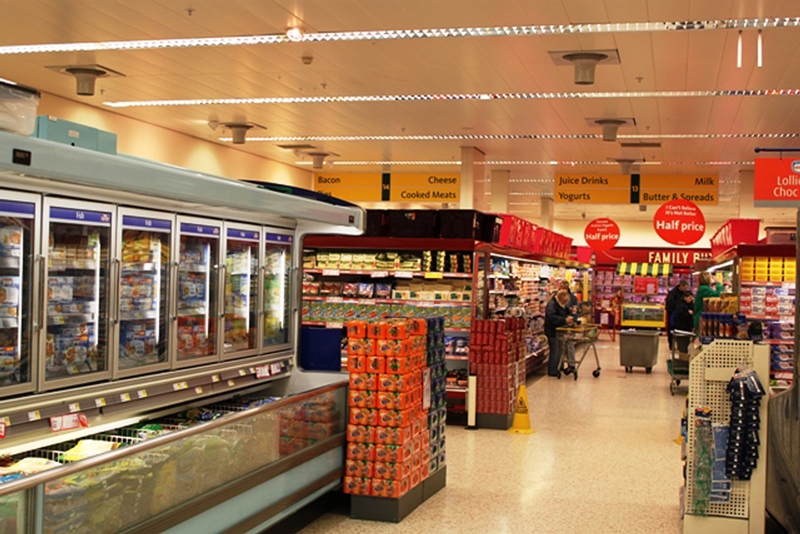
In September, official data reveals that food prices experienced their first monthly drop in two years, while fuel costs surged, leading to a consistent overall inflation rate of 6.7%.
The Office for National Statistics (ONS) reported that the prices of milk, cheese, and eggs decreased, offering some relief at the supermarket checkout.
However, petrol costs rose by 5.1p per liter, impacting drivers at fuel stations.
Analysts had anticipated a slight decline in the overall inflation rate, and the unchanged figure may cause "some disappointment," according to the ONS.
Grant Fitzner, Chief Economist at the ONS, stated on BBC Radio 4's Today program, "If you look across Europe, many countries have experienced periods of no change or even increases in the headline rate before they began to decrease."
Rishi Sunak, who pledged to reduce inflation to approximately 5.3% by year-end, reaffirmed that this remains his "top priority."
Recently, wage growth outpaced inflation for the first time in nearly two years during June to August.
Despite this positive development, many households continue to face financial pressures due to the high cost of living, and charities have warned that the situation could worsen this winter.
Hannah Nagy, a mother of two from Stainland in West Yorkshire, expressed her ongoing challenges. Although her income increased by around 5% since April, she explained that it "hasn't made a significant impact, especially considering the cost of groceries."
She added that the extra income is primarily allocated for daily necessities like electricity, petrol, and food, rather than leisure activities or vacations. Mrs. Nagy emphasized that the pace of price increases has left her feeling better off a few years ago when she earned less but expenses were lower.
Over the past few years, elevated food prices, driven by supply chain disruptions and the Ukraine conflict, have contributed to the rising cost of living. On an annual basis, food price inflation stands at 12.2%, though it has been gradually subsiding.
The ONS reported a 0.1% price decrease from August to September, driven by dairy products and soft drinks, with the only increase in the food category being fish, led by frozen prawns.
Conversely, the ONS highlighted the pressure on drivers as global oil prices climb. In the period between August and September, petrol prices averaged 153.6p per liter, and diesel increased by 6.3p to 157.4p per liter. While still below the highs of the previous year, these prices have risen from levels around 140p in June.
Oil prices surged following Saudi Arabia and Russia's decision to cut production in support of the global market, with concerns about further increases stemming from events in Israel and Palestine.
Grant Fitzner noted, "The ongoing conflict in Israel and Palestine is in a non-oil-producing region, but if the conflict spreads, it could lead to disruptions."
As for future interest rate hikes, the mixed inflation picture for September means that it's not a certainty. While many economists anticipate that interest rates will remain unchanged next month, it remains uncertain due to the multifaceted factors affecting the UK's inflation rate, including food and fuel prices. Photo by Whittle100, Wikimedia commons.


































